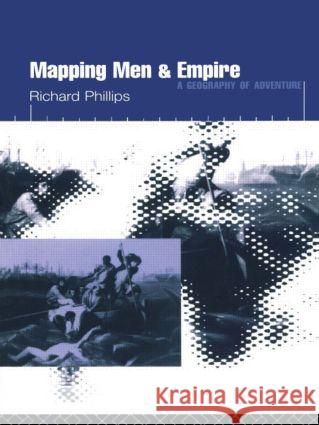Mapping Men and Empire : Geographies of Adventure » książka
Mapping Men and Empire : Geographies of Adventure
ISBN-13: 9780415137713 / Angielski / Twarda / 1996 / 224 str.
Mapping Men and Empire : Geographies of Adventure
ISBN-13: 9780415137713 / Angielski / Twarda / 1996 / 224 str.
(netto: 880,84 VAT: 5%)
Najniższa cena z 30 dni: 856,36
ok. 16-18 dni roboczych.
Darmowa dostawa!
Adventure stories, produced and consumed in vast quantities in 18th, 19th and 20th-century Europe, narrate encounters between Europeans and the non-European world. They map both European and non-European peoples and places. Robinson Crusoe maps a white, male, Christian, middle-class adventurer - a vision for Britain - and it maps a petit-bourgeois, settled island with a white master and a black slave - a vision for British colonialism. Exotic, malleable, uncomplicated settings serve to neutralise and normalise constructs, that seem implausible in more immediately familiar, textured settings. Victorian boys story writers such as Robert Ballantyne, map hegemonic masculinities, notably Christian manliness, and imperial geographies, including particular colonies. But beneath the superficial realism of adventure stories there lies an undercurrent of ambivalence, which makes adventures maps more fragile than they appear. While adventure stories map, they also unmap geographies and identities, destabilizing and sometimes recasting them.











